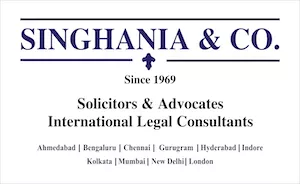- in India
- in India
- within Criminal Law, International Law and Insolvency/Bankruptcy/Re-Structuring topic(s)
- with readers working within the Advertising & Public Relations, Banking & Credit and Chemicals industries
INTRODUCTION
The Electricity Act, 2003 (“Act”) governs the generation, transmission, distribution, trading and consumption of electricity across India. To regulate the power sector in the State of Uttar Pradesh, the government of Uttar Pradesh has set up the Uttar Pradesh Electricity Regulatory Commission (UPERC) as an autonomous body corporate under section 82 of the Act.
UP ELECTRICITY SUPPLY CODE, 2005
The UPERC notified the UP Electricity Supply Code, 2005 (“Code”) to specify the procedure for distribution of electricity and enlist the obligations of licensees and consumers. The Act does not typically permit the consumer to supply the electricity supplied to it by the licensee unless an exemption, sanction or license is granted. In the state of Uttar Pradesh such an exemption is granted under Clause 4.46(a) of the Code and this articles discusses the situations in which such exemption is granted by the UPERC.
Clause 4.46(a) of the Code states as follows:
“4.46 Sale of Energy by Consumer
(a) The consumer shall not supply part or whole of the energy
supplied to him by the Licensee to another person or other premises
unless he holds a suitable sanction or license for distribution and
sale of energy, granted by the Commission, or has been exempted by
the Commission.
…”
The provision becomes useful in situations where a company is expanding its business operations, and its associate company is already receiving supply of electricity from the DISCOM. Since the associate company has already invested significant amount of its resources in setting up a sub-station for receiving electricity from the DISCOM, it can file a petition before the UPERC to seek exemption for supply of that electricity to its associate company. Thus, Clause 4.46(a) is a beneficial provision as it allows supply of electricity received from DISCOM to its associate company to prevent duplication of resources, additional cost etc.
JUDGMENTS
The Commission has granted exemption in a catena of judgments to group companies or companies expanding its operations on other premises. In a recent judgment of K.K Duplex & Paper Mills Pvt. Ltd. v. Managing Director, UPPCL & Ors.1 the Petitioner was seeking exemption for supply of electricity received from DISCOM on another premises. A certain portion of Petitioner's land on which factory was built, was acquired by the National Highway Authority of India (NHAI) for widening of highway. Due to shortage of space, the Petitioner had taken on lease, a parcel of land across the road from its factory. The UPERC granted the exemption for supplying electricity received from the DISCOM as it will enable the Petitioner to commence business operations soon without incurring further cost of taking a new connection from the DISCOM and setting up a new sub-station. Additionally, the UPERC also safeguarded the interest of the Respondents by directing the Petitioner to pay the tariff charges as per consumption of both the premises.
In another case, the petitioner, Samsung India Electronics2, a consumer of electricity from DISCOM sought exemption for supply of electricity to its associate company, Samsung Display Noida. The Petitioner's case was that if the exemption is not granted it will delay the project and incur additional cost for setting up a separate sub-station. Additionally, installation of the sub-station will reduce the construction area which will not be in compliance with the bye-laws and regulations. UPERC directed the Petitioner to act on customer-franchisee model wherein Petitioner will continue to be a consumer of the DISCOM and further act as a franchisee for the associate company. UPERC also clarified that the tariff applied on the Petitioner for the composite demand shall be under HV-2 category tariff and the responsibility to abide by the contractual agreement with DISCOM will be of the Petitioner.
CONCLUSION
Clause 4.46(a) of the Code is an enabling provision which gives powers to UPERC to permit supply of electricity received from DISCOM by its consumer to other persons or premises. Similar provision has been enacted in Codes of other states as well. It is a beneficial provision that can be used by companies to expand its business operations without incurring additional financial burden and delay in implementation of project.
Footnotes
1. Petition No. 1973/2023
2. Samsung India Electronics Pvt. Ltd. v. Managing Director, Paschimanchal Vidyut Vitran Nigam Ltd. & Anr., Petition no. 1551/2020.
The content of this article is intended to provide a general guide to the subject matter. Specialist advice should be sought about your specific circumstances.



